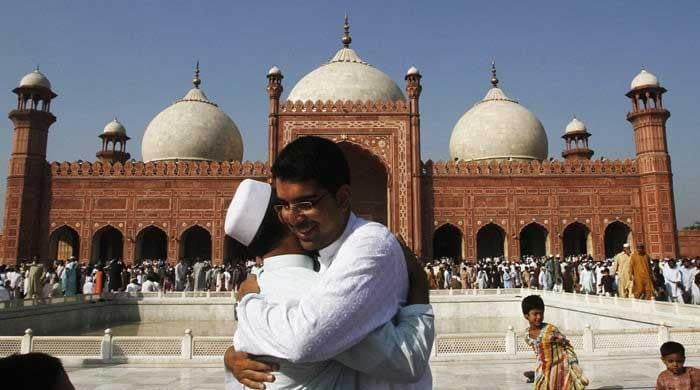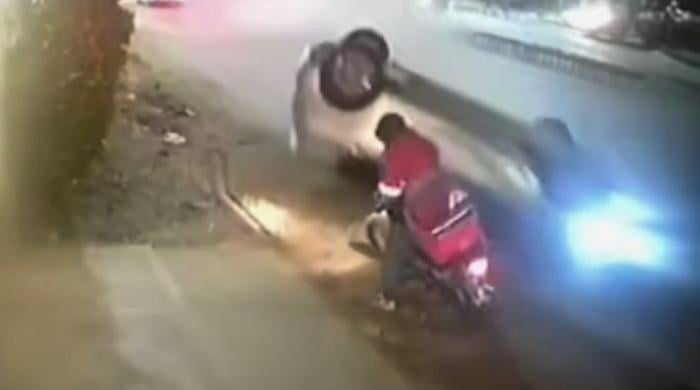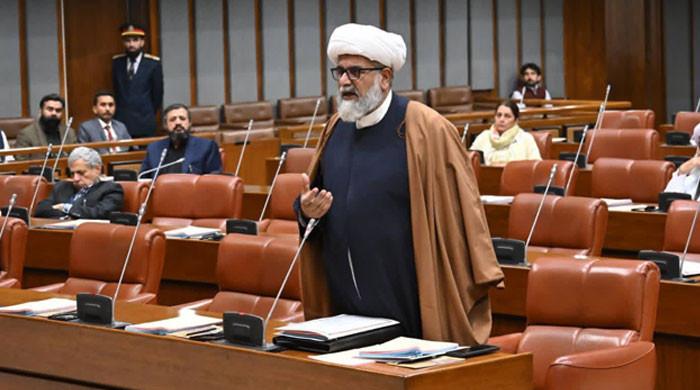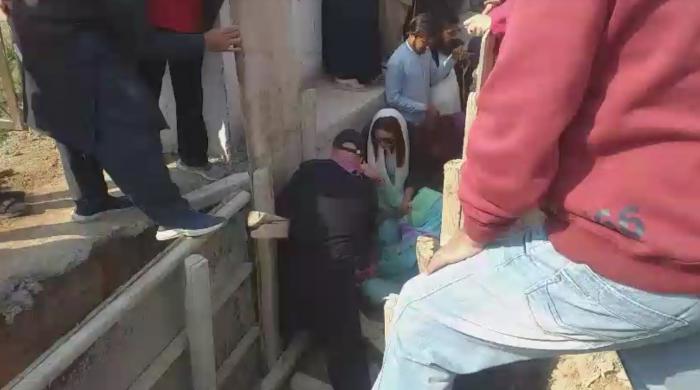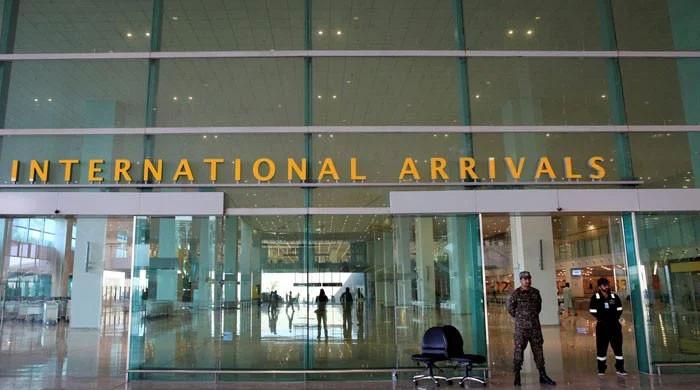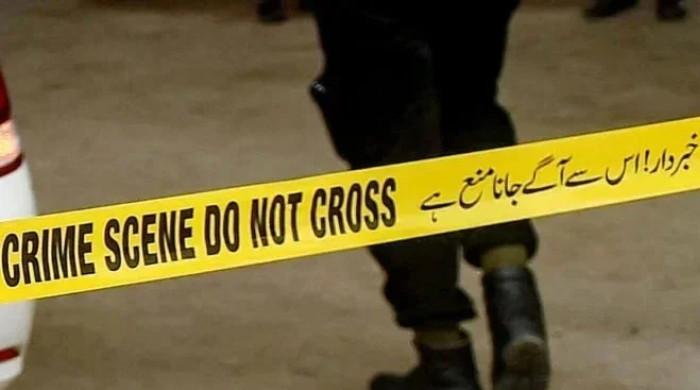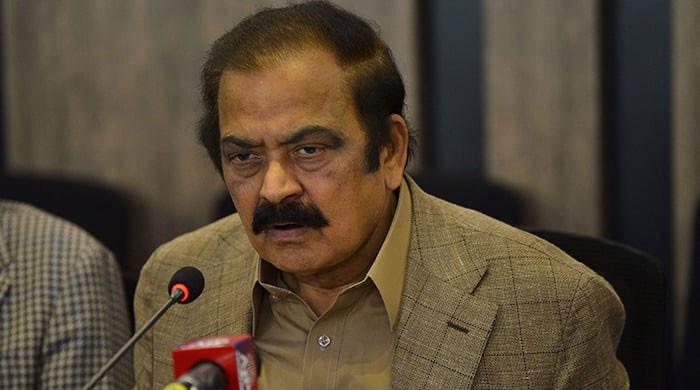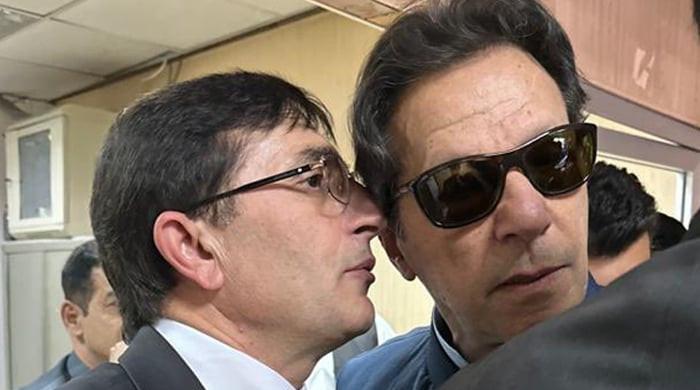Malala Yousafzai becomes film executive producer
"Stranger at the Gate" nominated for Oscars
February 09, 2023
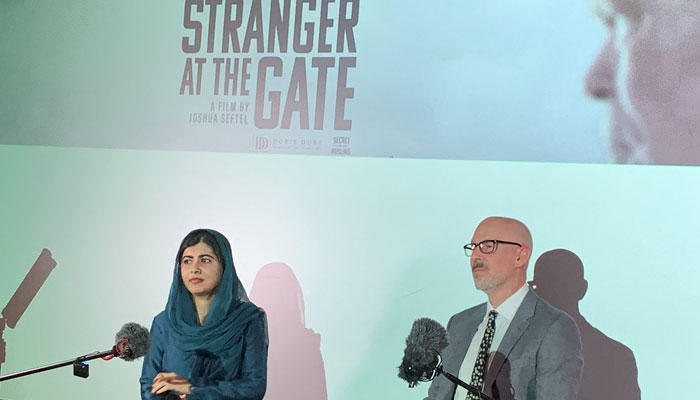
LONDON: Nobel Peace Prize winner Malala Yousafzai has called on political and religious leaders to say no to the Taliban and to all kinds of terrorism and militancy.
Malala’s statement came while speaking to Geo News and The News at the screening of the Oscar-shortlisted documentary film Stranger at the Gate.
It must be noted that Malala is the executive producer of a film that deals with the subjects of conflict, Islamophobia, racism, and the power of forgiveness.
When asked about the rise of violent militancy in the region, especially in Pakistan, Malala called on the country’s leadership to “come together for peace and say no to terrorism of all kinds and fight together against the extremist mindset using the name of Islam.
She said: “Everyone has to come together against the Taliban, challenge them, and say that there is no justification for terrorist acts in Islam. The Taliban should not be allowed to use the name of Islam, our values, and traditions. We need peace and stability and security for the ordinary people.”
She further said she onboarded the Oscar-shortlisted documentary film Stranger at the Gate as the executive producer to bring communities together and to highlight the message of forgiveness and cohesion.
The documentary tells the true story of Mac McKinney, a former US Marine who planned to attack a masjid and instead turned to Islam.
The Nobel Peace Prize laureate said, “I decided to become executive producer of this film so that we could tell stories of those who are not heard enough. I wanted to project the issue of Islamophobia, stereotypes and Muslims in the West.
“This film has the power to create harmony, which can become possible through connecting to people to know about their personal lives and stories. It [the film] is a powerful true story of forgiveness and redemption.”
She also added that the film proved that when people meet each other, share stories and get to know each other, they realise that they are not much different from each other.
“Faces and appearances can be different but we are fundamentally the same; we can gossip together, listen to each other and we can add value to each other’s time.”
Speaking about what she had learned from the film, she said that she had learned two powerful things.
“One is that our values have a wonderful impact. Forgiveness is very important as it changes lives. We should have a bigger heart for others. The Muslim wife in the film has a big heart. She has a big heart for the attacker.
"Two, that we should not get into stereotyping others. We should connect with other people directly and broaden our perspectives based on our own first-hand understanding. It's very important that we keep challenging stereotypes.”
Stranger at the Gate is about a US marine and war veteran Mr McKinney who was taught during his time in the military to see Muslims as enemies. When he returned to Muncie, Indiana, he intended to act on this belief and planned an attack on the Islamic Centre of Muncie.
However, his life takes an unexpected turn when he arrives at the masjid and is met with pure, simple compassion from the local Muslim communities.
He first meets Dr Saber Bahrami, a member of the Muncie Muslim community, who hugged McKinney after seeing him and invited him to the mosque seeing him as a vulnerable person.
After McKinney becomes a member of the mosque, Bibi Bahrami and the other congregants learn of McKinney’s plan to bomb them. However, they choose to forgive him.
“Mac is like my little brother who needed help, so we were there for him,” says Bahrami.
Stranger at the Gate, which is the latest work from Seftel’s decade-long film project to combat Islamophobia, is distributed by The New Yorker as part of the magazine’s New Yorker Documentary series.




